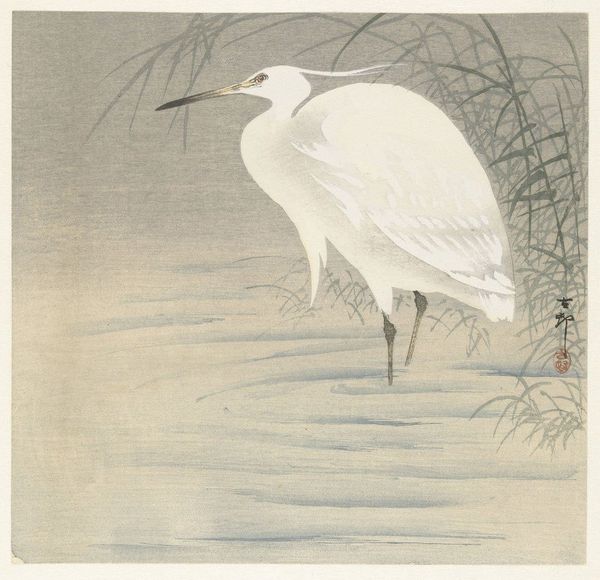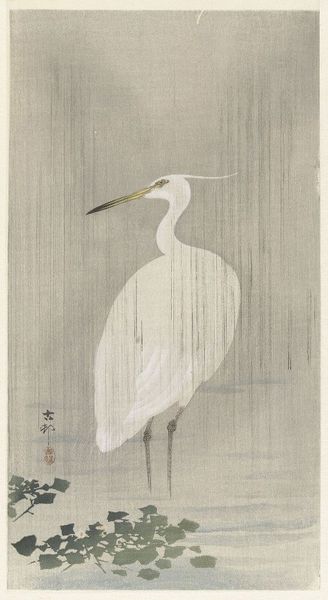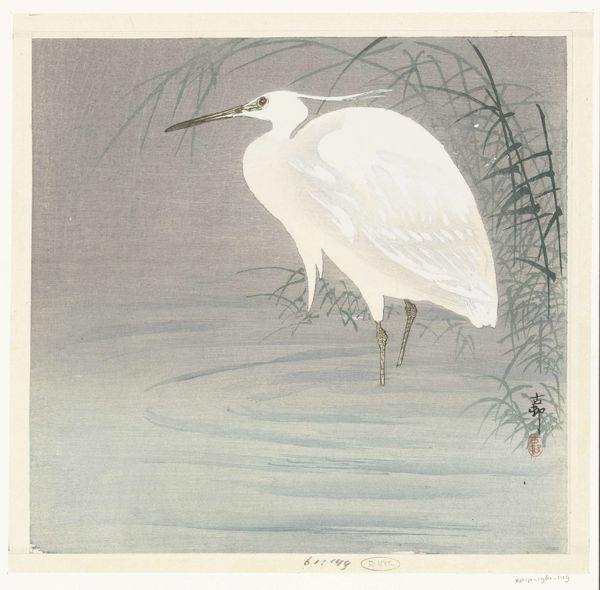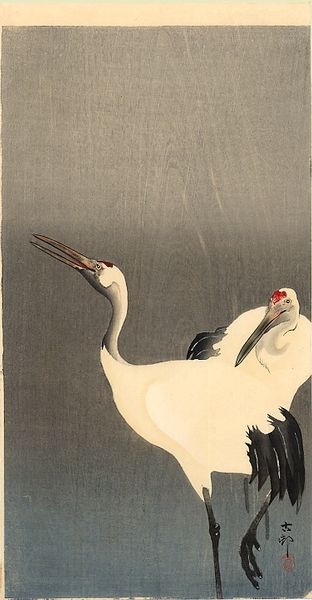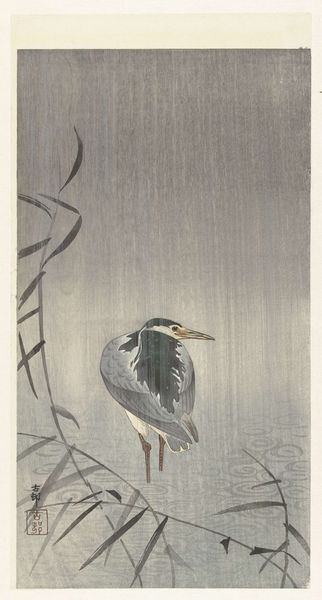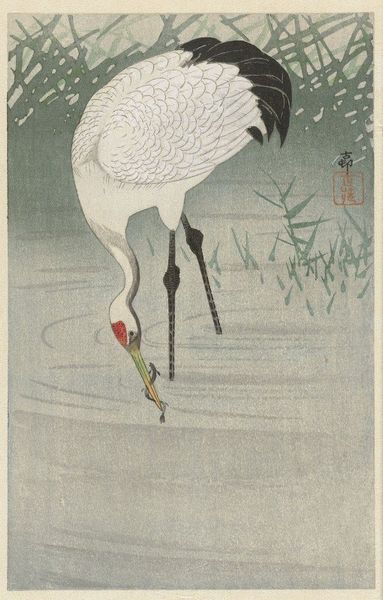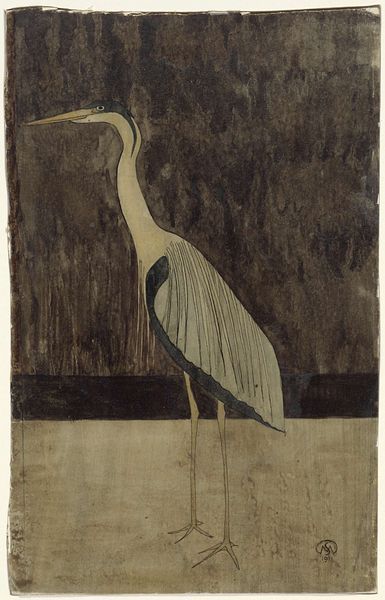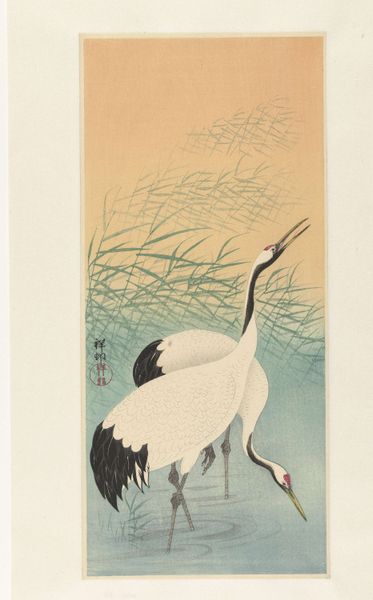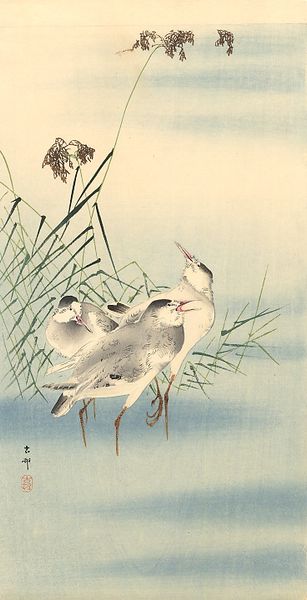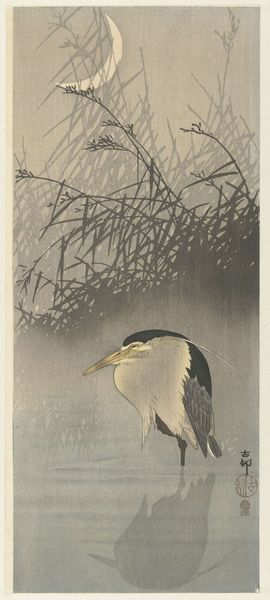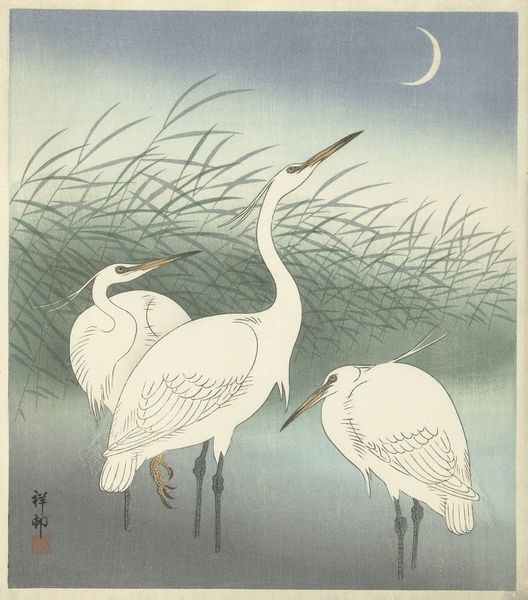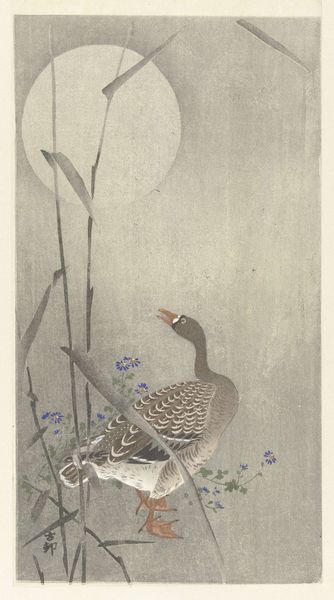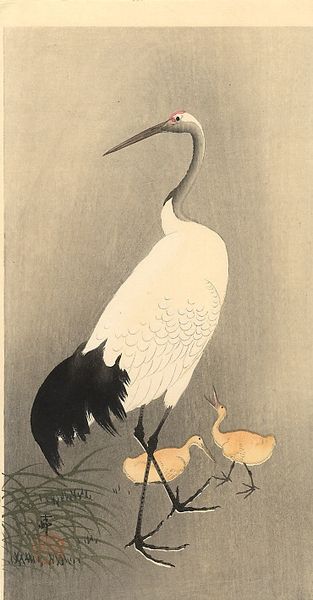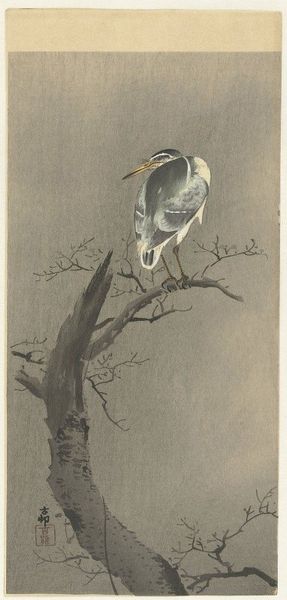
watercolor
#
water colours
#
landscape
#
bird
#
ukiyo-e
#
watercolor
#
orientalism
#
water
#
watercolor
Copyright: Public domain
Curator: Ah, isn't that ethereal? It feels like glimpsing a moment snatched straight from a dream. Editor: Absolutely, there's a hushed quality to it. We're looking at "Crane in Small Water" by Ohara Koson, likely a watercolor piece rendered in that distinctly evocative Ukiyo-e style. The date, alas, is unknown. Curator: Ukiyo-e's always playing with that blend of reality and dreamscape, right? That crane... it's almost too perfect, too serene, standing amidst the water. It gives an impression of profound peace, but also a slight melancholic beauty. Like a fleeting moment of perfection, before the inevitable ripples disturb the calm. Editor: I see that melancholy too. Cranes, you know, in Japanese art and culture are powerful symbols of longevity and good fortune, often appearing in celebrations. The almost monochrome watercolor emphasizes this timeless feel, this connection with the past. However, here in this landscape, the single bird creates a sensation of stillness. The symbol of fortune, health and happiness is presented standing by the decay of a broken trunk that emerges from the murky water, almost if questioning this established symbolism and the natural life cycles of beginning, growth and death. Curator: A delicious subversion of the established trope, maybe? Almost like a memento mori nestled inside an image of tranquility. I love the placement of the crane—it is right in the front, daring you to be happy as the shadows linger just beneath the surface, and yet surrounded by slender plants that look like a cage around the bird's thin legs. Editor: And notice how the composition directs the eye upward, along the crane's graceful neck, into that hazy, undefined space above. Is it sky? Mist? Maybe Koson intended it to be all things, a blank canvas onto which we project our own interpretations. It captures the way that our symbols can also feel blurry and lose its intended or popular meaning through context. Curator: Exactly. It reminds me of those Zen koans—seemingly simple, but endlessly profound. Perhaps that’s the point, isn’t it? The crane is not just a bird; it's a mirror. It throws back whatever the viewer needs to see in that quiet, reflective space. I feel very still now... I am looking forward to knowing how visitors to the exposition will be reacting to its peaceful wisdom. Editor: Indeed, a little splash of ink and water, yet a whole universe of feeling and thought unfurls within.
Comments
No comments
Be the first to comment and join the conversation on the ultimate creative platform.
